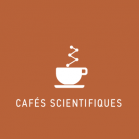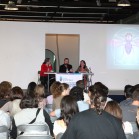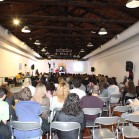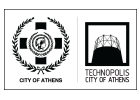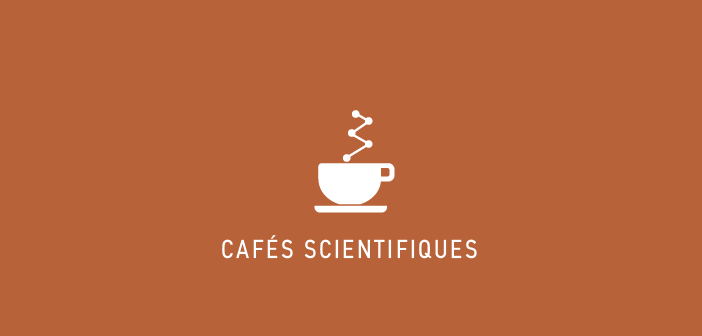
Mental health in men and women
Wednesday, April 30rd, 20:00, Room Θ1
We will discuss clinical and research data on the role of gender as a factor differentiating the incidence of mental illness, and treatment response. For example, women are more vulnerable to psychiatric disorders such as depression and anxiety disorders, while men are more prone to alcoholism.
Christina Dalla, Assistant Professor of Psychopharmacology
Nikolaos Kokras, Psychiatrist, Psychopharmacologist
Alexia Pollisidis, Psychopharmacologist
Vasillis Kafetzopoulos, Medical Doctor, PhD Candidate
Theodoros Mavridis, Medical Doctor, PhD Candidate
Mosquito: Such an interesting roommate
Thursday May 1st: 17:00, Room Θ1
Mosquito: such a tiny creature and yet it has caused and still causes significant problems in humans. But why do mosquitoes want our blood and always manage to locate us? Is it possible that diet and exercise can affect the preference of mosquitoes for different people? Is it possible that they travel from one continent to another? These are only some of the many questions about mosquitoes. It is a tiny perfect machine that is envied by many professionals. Mosquito: even at the sound of the name, you feel that you can already hear it.
Antonis Michaelakis, Researcher, Benaki Phytopathological Institute
High tech made in Greece? But of course!
Thursday May 1st: 18:00, Room Θ1
Have you ever thought what is the basic tool of mankind for developing new technologies ? The answer is: Advanced Materials! It is undoubtedly the basis of technology, as it is the basis of the tiny circuits that make a multifunctional mobile phone, the hard drives on your computer, biochips and even targeted drugs that promise early diagnosis and treatment with minimal side effects. Materials science is a field that deserves to be discovered! Economic development through technological innovation is feasible, if only we strive for it.
Konstantinos Giannakopoulos, Institute of Nanoscience and Nanotechnology, NCSR “Demokritos”
Mathematics in everyday life
Thursday May 1st: 19:00, Room Θ1
Can Maths predict if a couple will divorce? Could Romeo and Juliet have had a different ending?
What does Maths have to do with online dating?
What are your chances to date someone you like?
Can we define beauty using Maths? What did Leonardo da Vinci know when he painted the Mona Lisa?
How fast does a rumour spread?
Mathematics is all around us, sometimes hidden very well! Come to learn more about it through nice pictures, videos, and informal discussion!
Dr. Katerina Kaouri, applied mathematician, Assistant Professor, Intercollege Cyprus
Male infertility
Thursday May 1st, 20:00, Room Θ1
Over the last decades, human reproduction has become harder than ever before, with a marked decrease in birth rates in western countries. A big part of the problem is related to male infertility, which is the inability to conceive mainly due to low sperm quality. Public awareness on the issue of male infertility is important, since precautionary action and early treatment may contribute to the solution of reproductive problems, thus improving the couples’ quality of life.
Evangelini Evgeni, Spermatology Lab “G. Lymberopoulos”, CRYOGONIA Sperm Bank
Hellenic Cord Blood Bank – Today and Tomorrow
Friday May 2nd, 16:00, Room Θ1
The “café” will emphasize the purpose of Cord Blood Donation and the “Gift of Life” any potential donor mother may provide to children and adults in need of hematopoetic stem cell transplantation. The discussion will also explore the potential of cells derived from cord blood and their application in advanced cell therapies such as regenerative medicine and tissue engineering.
Stathis Michalopoulos, Quality Control Supervisor, Biomedical Research Foundation of the Academy of Athens – Hellenic Cord Blood Bank
How are drugs designed?
Friday May 2nd, 18:00, Room Θ1
This talk will address how drugs are designed to combat a disease – from the discovery of the cause of the disease (e.g. a mutant protein), specialized techniques for the design of small chemical molecules (that are drugs), to clinical trials. We will also discuss advances and progress in individualized treatment (also known as personalized medicine), i.e. how DNA testing could help each patient receive medication specifically tailored for them.
Zoe Cournia, Investigator D’, Biomedical Research Foundation of the Academy of Athens
Indeed… we constantly make new neurons
Friday May 2nd: 19:00, Room Θ1
The human brain is the most complex structure in the known universe. Inside our head we have a giant tangle of very thin and long cables, thanks to which we perceive, act, feel, learn and remember. But when something goes wrong in this network, brain diseases occur with dramatic consequences for the patient and for society. Strong scientific evidence suggests that new neurons can be generated in the adult brain from neural stem cells located in specific brain regions. But what is the function of new neurons? How are they created and replenished? How can we use them to treat brain injuries and neurodegenerative diseases?
Panagiotis Politis, Researcher, Biomedical Research Foundation, Academy of Athens
Natural Disasters in Greece
Friday May 2nd, 20:00, Room Θ1
Natural hazards are an integral part of the evolution of the planet, while earthquakes and their associated effects (tsunamis, landslides, etc) are the major natural hazards in our country. Greece is the most seismically active country in Europe where nearly 50% of the seismic energy is released. Greece is a natural laboratory of global importance for the study of geological processes. What is the relationship between earthquakes and faults? Which faults are active? What are their recurrence intervals? How do we study them, what are the implications and are there any potential indirect benefits from them?
Ιοannis Papanikolaou, Assιstant Professor, Agricultural University of Athens
Air Pollution: New challenges and approaches
Saturday May 3rd, 17:00, Room Θ1
Air pollution continues to be one of the main environmental problems in the big urban centers of Europe, America and Asia. The economic crisis in our country has brought it back in focus after the smog episodes on cold winter nights and the subsequent fears of serious impact on public health. What are the pollutants that threaten our health and how do they affect us? Are we aware of the consequences of our activities? How much do natural sources affect air pollution?
Lila Diapouli, National Center for Scientific Research “Demokritos”
Memory, learning and brain plasticity
Saturday May 3rd, 18:00, Room Θ1
Brain plasticity refers to the ability of the brain to change its functional and structural state, as a result of experience and learning. This is one of the features that distinguish the brain from traditional ‘machines’. But what is this flexibility, what changes in the brain and how does this change affect our ability to learn and remember? Are all brains equally ‘plastic’? Can we overcome through experience and learning any limitations set by our genes? Are brain mechanisms of learning and memory similar in humans and animals, including invertebrates? The three speakers of this event will discuss these issues with the public.
Irini Skaliora, Research Assistant Professor, Biomedical Research Foundation of the Academy of Athens
Efthimios Skoulakis, Research Associate Professor, Fleming Research Center
Athanassios Protopapas, Associate Professor, University of Athens
Music and painting in Space. From electromagnetic fields to polar aurora
Saturday May 3rd: 19:00, Room Θ1
A “violin bow” originating in a moody star known to humans as the Sun, is the invisible hand that creates space music – a variety of electromagnetic waves whose frequencies can be transcribed in the audio spectrum as tweets, whistles and squeaks. Strange sounds shoot electrons into the Earth’s atmosphere (as a bow shoots arrows) and create the polar auroras – a magnificent painting seen in the night sky in Scandinavia, Canada and sometimes Greece.
Ioannis Daglis, Professor, University of Athens
A story about Aristotle and smart animals
Sunday May 4th, 16:00, Room Θ1
Apart from refrigerators, our eating habits and the flu, part of our everyday lives are the hundreds of thoughts which arise from observing and sensing our environment. One question that has certainly come up in our mind, consciously or unconsciously, is in what way we are different from other animals. The answer may seem obvious but it is actually difficult and complex. Aristotle’s analysis of the “logical” nature of living beings constitute the first systematic attempt in the history of science to answer this question.
Christos Pehlivanidis, Postdoctoral researcher, European research program THALIS, Aristotle University of Thessaloniki
Green Chemistry
Sunday May 4th, 18:00, Room Θ1
The improvement of the quality of human life involves the development and use of “materials” and “drugs” which are not provided directly by nature. Chemistry plays a major role in this. However, taking into account certain problems facing the planet, due to the unlimited and without measure development, technology is called to contribute to an environmental improvement through “cleaner” processes to ensure a more ecological approach to industrial production. Green chemistry is called on to provide the solution for the sustainability of the planet.
Dr. Ioannis D. Kostas, Research Director, National Hellenic Research Foundation


